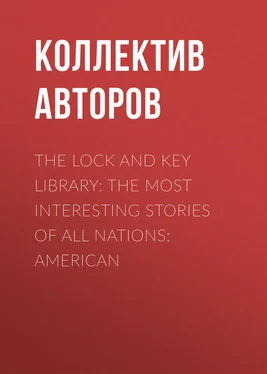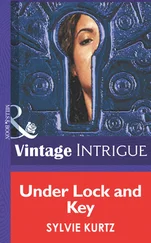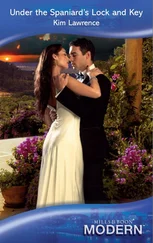Коллектив авторов - The Lock and Key Library - The most interesting stories of all nations - American
Здесь есть возможность читать онлайн «Коллектив авторов - The Lock and Key Library - The most interesting stories of all nations - American» — ознакомительный отрывок электронной книги совершенно бесплатно, а после прочтения отрывка купить полную версию. В некоторых случаях можно слушать аудио, скачать через торрент в формате fb2 и присутствует краткое содержание. Жанр: foreign_antique, foreign_prose, на английском языке. Описание произведения, (предисловие) а так же отзывы посетителей доступны на портале библиотеки ЛибКат.
- Название:The Lock and Key Library: The most interesting stories of all nations: American
- Автор:
- Жанр:
- Год:неизвестен
- ISBN:нет данных
- Рейтинг книги:5 / 5. Голосов: 1
-
Избранное:Добавить в избранное
- Отзывы:
-
Ваша оценка:
- 100
- 1
- 2
- 3
- 4
- 5
The Lock and Key Library: The most interesting stories of all nations: American: краткое содержание, описание и аннотация
Предлагаем к чтению аннотацию, описание, краткое содержание или предисловие (зависит от того, что написал сам автор книги «The Lock and Key Library: The most interesting stories of all nations: American»). Если вы не нашли необходимую информацию о книге — напишите в комментариях, мы постараемся отыскать её.
The Lock and Key Library: The most interesting stories of all nations: American — читать онлайн ознакомительный отрывок
Ниже представлен текст книги, разбитый по страницам. Система сохранения места последней прочитанной страницы, позволяет с удобством читать онлайн бесплатно книгу «The Lock and Key Library: The most interesting stories of all nations: American», без необходимости каждый раз заново искать на чём Вы остановились. Поставьте закладку, и сможете в любой момент перейти на страницу, на которой закончили чтение.
Интервал:
Закладка:
The Lock and Key Library: The most interesting stories of all nations: American
"Riddle Stories"
Introduction by Julian Hawthorne
When Poe wrote his immortal Dupin tales, the name "Detective" stories had not been invented; the detective of fiction not having been as yet discovered. And the title is still something of a misnomer, for many narratives involving a puzzle of some sort, though belonging to the category which I wish to discuss, are handled by the writer without expert detective aid. Sometimes the puzzle solves itself through operation of circumstance; sometimes somebody who professes no special detective skill happens upon the secret of its mystery; once in a while some venturesome genius has the courage to leave his enigma unexplained. But ever since Gaboriau created his Lecoq, the transcendent detective has been in favor; and Conan Doyle's famous gentleman analyst has given him a fresh lease of life, and reanimated the stage by reverting to the method of Poe. Sherlock Holmes is Dupin redivivus, and mutatus mutandis; personally he is a more stirring and engaging companion, but so far as kinship to probabilities or even possibilities is concerned, perhaps the older version of him is the more presentable. But in this age of marvels we seem less difficult to suit in this respect than our forefathers were.
The fact is, meanwhile, that, in the riddle story, the detective was an afterthought, or, more accurately, a deus ex machina to make the story go. The riddle had to be unriddled; and who could do it so naturally and readily as a detective? The detective, as Poe saw him, was a means to this end; and it was only afterwards that writers perceived his availability as a character. Lecoq accordingly becomes a figure in fiction, and Sherlock, while he was as yet a novelty, was nearly as attractive as the complications in which he involved himself. Riddle-story writers in general, however, encounter the obvious embarrassment that their detective is obliged to lavish so much attention on the professional services which the exigencies of the tale demand of him, that he has very little leisure to expound his own personal equation – the rather since the attitude of peering into a millstone is not, of itself, conducive to elucidations of oneself; the professional endowment obscures all the others. We ordinarily find, therefore, our author dismissing the individuality of his detective with a few strong black-chalk outlines, and devoting his main labor upon what he feels the reader will chiefly occupy his own ingenuity with, – namely, the elaboration of the riddle itself. Reader and writer sit down to a game, as it were, with the odds, of course, altogether on the latter's side, – apart from the fact that a writer sometimes permits himself a little cheating. It more often happens that the detective appears to be in the writer's pay, and aids the deception by leading the reader off on false scents. Be that as it may, the professional sleuth is in nine cases out of ten a dummy by malice prepense; and it might be plausibly argued that, in the interests of pure art, that is what he ought to be. But genius always finds a way that is better than the rules, and I think it will be found that the very best riddle stories contrive to drive character and riddle side by side, and to make each somehow enhance the effect of the other. – The intention of the above paragraph will be more precisely conveyed if I include under the name of detective not only the man from the central office, but also anybody whom the writer may, for ends of his own, consider better qualified for that function. The latter is a professional detective so far as the exigencies of the tale are concerned, and what becomes of him after that nobody need care, – there is no longer anything to prevent his becoming, in his own right, the most fascinating of mankind.
But in addition to the dummyship of the detective, or to the cases in which the mere slip of circumstance takes his place, there is another reason against narrowing our conception of the riddle story to the degree which the alternative appellation would imply. And that is, that it would exclude not a few of the most captivating riddle stories in existence; for in De Quincey's "Avenger," for example, the interest is not in the unraveling of the web, but in the weaving of it. The same remark applies to Bulwer's "Strange Story"; it is the strangeness that is the thing. There is, in short, an inalienable charm in the mere contemplation of mystery and the hazard of fortunes; and it would be a pity to shut them out from our consideration only because there is no second-sighted conjurer on hand to turn them into plain matter of fact.
Yet we must not be too liberal; and a ghost story can be brought into our charmed and charming circle only if we have made up our minds to believe in the ghosts; otherwise their introduction would not be a square deal. It would not be fair, in other words, to propose a conundrum on a basis of ostensible materialism, and then, when no other key would fit, to palm off a disembodied spirit on us. Tell me beforehand that your scenario is to include both worlds, and I have no objection to make; I simply attune my mind to the more extensive scope. But I rebel at an unheralded ghostland, and declare frankly that your tale is incredible. And I must confess that I would as lief have ghosts kept out altogether; their stories make a very good library in themselves, and have no need to tag themselves on to what is really another department of fiction. Nevertheless, when a ghost story is told with the consummate art of a Miss Wilkins, and of one or two others on our list, consistency in this regard ceases to be a jewel; art proves irresistible. As for adventure stories, there is a fringe of them that comes under the riddle-story head; but for the most part the riddle story begins after the adventures have finished. We are to contemplate a condition, not to watch the events that ultimate in it. Our detective, or anyone else, may of course meet with haps and mishaps on his way to the solution of his puzzle; but an astute writer will not color such incidents too vividly, lest he risk forfeiting our preoccupation with the problem that we came forth for to study. In a word, One thing at a time!
The foregoing disquisition may seem uncalled for by such rigid moralists as have made up their minds not to regard detective, or riddle stories, as any part of respectable literature at all. With that sect, I announce at the outset that I am entirely out of sympathy. It is not needed to compare "The Gold Bug" with "Paradise Lost"; nobody denies the superior literary stature of the latter, although, as the Oxford Senior Wrangler objected, "What does it prove?" But I appeal to Emerson, who, in his poem of "The Mountain and the Squirrel," states the nub of the argument, with incomparable felicity, as follows: – you will recall that the two protagonists had a difference, originating in the fact that the former called the latter "Little Prig." Bun made a very sprightly retort, summing up to this effect: —
"Talents differ; all is well and wisely put;
If I cannot carry forests on my back,
Neither can you crack a nut."
Andes and Paradises Lost are expedient and perhaps necessary in their proper atmosphere and function; but Squirrels and Gold Bugs are indispensable in our daily walk. There is as fine and as true literature in Poe's Tales as in Milton's epics; only the elevation and dimensions differ. But I would rather live in a world that possessed only literature of the Poe caliber, than shiver in one echoing solely the strains of the Miltonian muse. Mere human beings are not constructed to stand all day a-tiptoe on the misty mountain tops; they like to walk the streets most of the time and sit in easy chairs. And writings that picture the human mind and nature, in true colors and in artistic proportions, are literature, and nobody has any business to pooh-pooh them.
Читать дальшеИнтервал:
Закладка:
Похожие книги на «The Lock and Key Library: The most interesting stories of all nations: American»
Представляем Вашему вниманию похожие книги на «The Lock and Key Library: The most interesting stories of all nations: American» списком для выбора. Мы отобрали схожую по названию и смыслу литературу в надежде предоставить читателям больше вариантов отыскать новые, интересные, ещё непрочитанные произведения.
Обсуждение, отзывы о книге «The Lock and Key Library: The most interesting stories of all nations: American» и просто собственные мнения читателей. Оставьте ваши комментарии, напишите, что Вы думаете о произведении, его смысле или главных героях. Укажите что конкретно понравилось, а что нет, и почему Вы так считаете.












